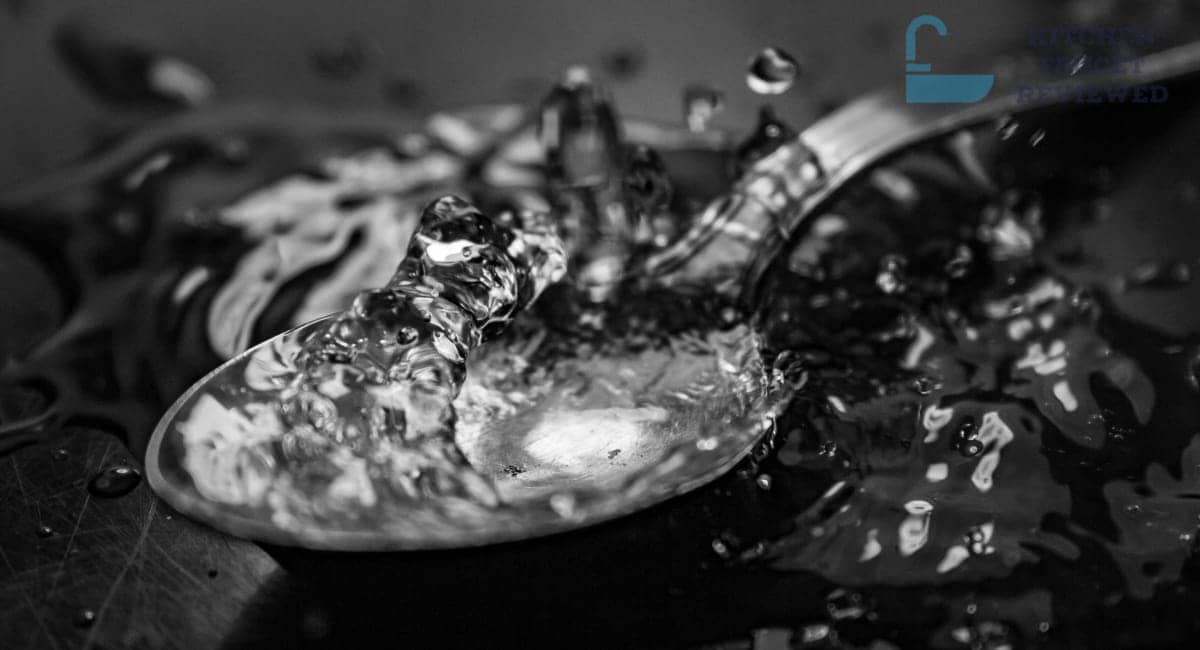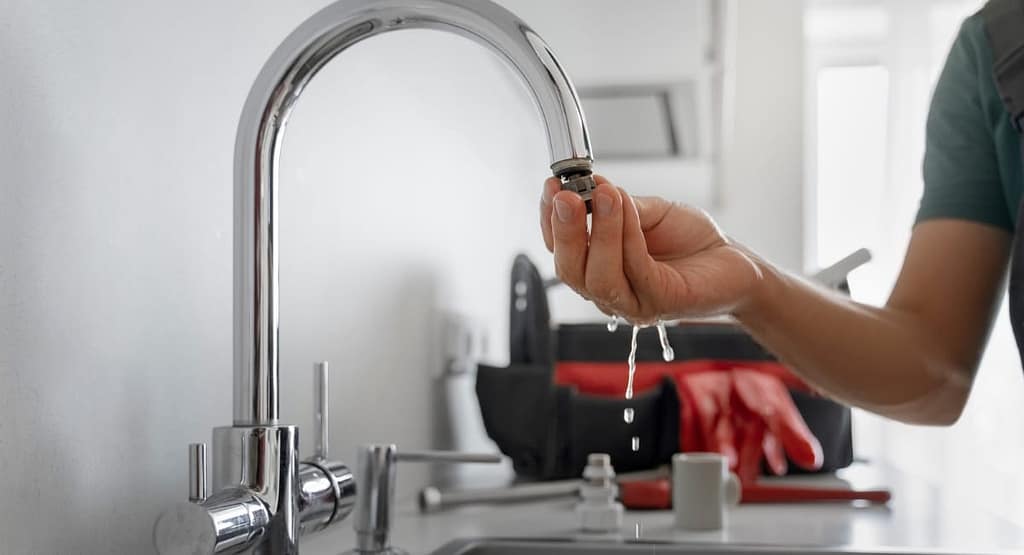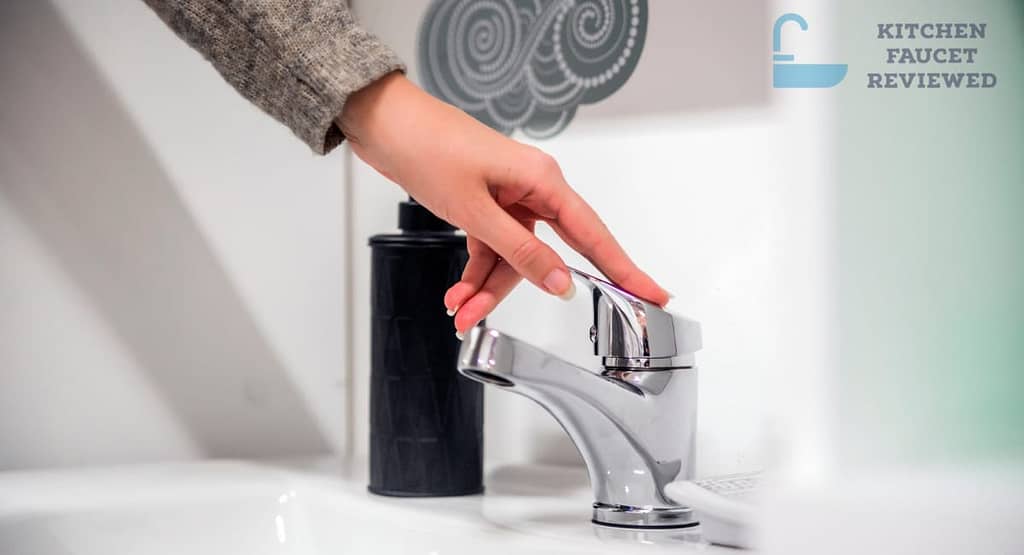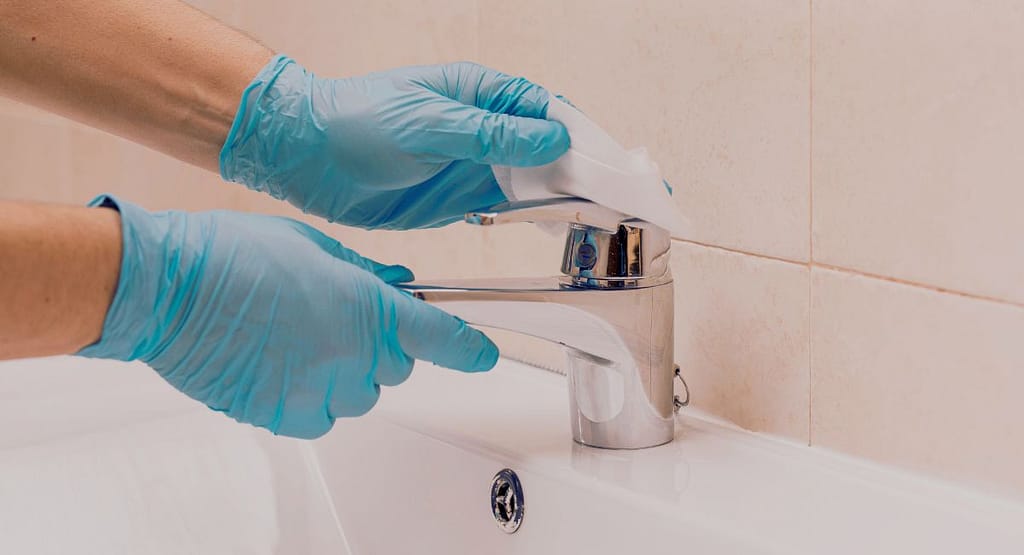Have you ever turned on your faucet only to be greeted by the disconcerting sight of black water flowing out? This unsettling phenomenon can be alarming, but fear not, as we delve into the causes and potential solutions for this issue. In this comprehensive blog post, we will explore the various reasons behind black water and provide you with valuable insights to fix the problem.
How to Fix The Black Water Come out From The faucet
Understanding the Causes
1. Corroded Pipes:
When it comes to the root causes of black water, one common culprit is corroded pipes. If your plumbing system consists of older iron or galvanized steel pipes, they may be prone to corrosion over time. This corrosion occurs due to the accumulation of minerals, rust, or sediment within the pipes.
As a result, the water flowing through these corroded pipes can take on a dark or black appearance. The presence of these particles in the water can be concerning not only for aesthetic reasons but also due to potential health risks.
2. Municipal Supply Issues:
Sometimes, the source of black water problems lies outside the confines of your home. Municipal water supplies can experience occasional disruptions, which may contribute to the issue. These disruptions can arise from changes in water flow, maintenance activities, or the introduction of certain chemicals into the water system.
Such disturbances can cause sediments or organic matter to dislodge from the pipes or the supply infrastructure, resulting in black water reaching your faucets.
It’s important to note that municipal water supplies usually undergo rigorous testing and treatment to ensure water quality. However, occasional incidents can occur, and prompt reporting of black water can help address such issues effectively.
3. Water Heater Troubles:
If you notice that the black water is limited to your hot water outlets, your water heater might be to blame. Over time, sediments can accumulate within the tank of your water heater. These sediments consist of minerals, debris, and other particles that settle at the bottom of the tank.
When you heat the water, these sediments can become dislodged and mix with the hot water supply, resulting in discoloration. Additionally, a deteriorating anode rod within the water heater can contribute to black water issues. The anode rod is designed to prevent the corrosion of the tank, but if it deteriorates, it can lead to the degradation of the tank, causing black water problems.
4. Algal Blooms:
Although relatively rare, black water can sometimes be a result of algal blooms in local water bodies. Algal blooms occur when certain species of algae multiply rapidly, leading to an excessive presence of these organisms in the water.
Some species of algae produce pigments that can turn the water dark or black. If the water treatment facility responsible for supplying your area’s water does not effectively address the issue of algal blooms, the contaminated water can make its way into your home.
It’s important to note that public water treatment facilities usually have measures in place to monitor and manage algal blooms, but in exceptional cases, some instances may slip through the system.
Solutions and Preventive Measures
Encountering black water flowing from your faucets can be a disconcerting experience. The presence of discolored water indicates underlying issues that require immediate attention. By following these steps, you can restore clean and safe water to your home.
1. Contact the Water Supplier:
If you suspect a municipal supply issue, it is crucial to reach out to your local water supplier immediately. Municipalities are responsible for providing safe drinking water, and they should be informed of any concerns regarding water quality.
By contacting your water supplier, you can gather vital information about ongoing maintenance, possible contaminants, or necessary precautions to take. It is essential to follow their guidance to avoid consuming or using discolored water until the problem is resolved.
2. Inspect and Replace Corroded Pipes:
Corroded pipes can be a significant contributor to black water. In such cases, it is advisable to consult a professional plumber who can assess the extent of the corrosion and recommend appropriate measures.
By identifying and replacing corroded pipes, you eliminate a common cause of discoloration. Consider upgrading to modern materials such as copper or PEX pipes, which are more resistant to corrosion, to prevent future issues.
3. Restoring Water Heater Performance
Water heater-related problems can also lead to the discoloration of water. Start by flushing the tank to remove sediments that may have accumulated over time.
Additionally, if the water heater’s anode rod is deteriorating, it may be necessary to replace it. Regular maintenance of the water heater, including flushing and replacing the anode rod when necessary, can help prolong its lifespan and prevent further discoloration issues.
4. Purifying Your Water Supply
Installing water filtration systems can be an effective measure to remove impurities and sediments from the water. Activated carbon filters and reverse osmosis systems are two popular options that can ensure the water reaching your faucets is clear and safe for use. These filtration systems work by trapping and eliminating contaminants, providing you with peace of mind regarding your water quality.
5. Preventive Measures for the Future
Prevention is key when it comes to addressing black water issues. Schedule regular maintenance check-ups for your plumbing system, including the water heater and pipes.
By doing so, professionals can identify any potential problems early on and address them before they escalate. Additionally, monitor the water quality periodically by checking its appearance. If you notice any changes or concerns, promptly contact professionals to assess the situation and provide appropriate solutions.
Can I wash dishes from black water that comes from kitchen faucet?
Black water that comes from a kitchen faucet typically refers to wastewater that contains a variety of contaminants, such as food particles, grease, and potentially harmful substances. As such, it is not advisable to wash dishes directly with black water from a kitchen faucet. Here’s a well-researched and deep answer explaining why:
Health and Safety Concerns:
Black water can harbor harmful bacteria, pathogens, and chemicals that pose a risk to human health. Washing dishes with such water can contaminate the utensils, making them unsanitary and potentially hazardous when used for food consumption.
Sanitation Standards:
Washing dishes properly requires using clean water and appropriate detergents or cleaning agents. Black water does not meet the required sanitation standards for dishwashing, as it already contains contaminants that can compromise the cleanliness of the dishes.
Cross-Contamination:
Dishwashing involves removing food residues and ensuring the elimination of bacteria and other harmful microorganisms. Washing dishes with black water can introduce additional contaminants and increase the likelihood of cross-contamination, which can lead to foodborne illnesses.
Aesthetics and Odor:
Black water often has a foul odor and can leave stains or residue on the dishes. It is not desirable to use such water for washing dishes, as it can negatively impact the appearance, smell, and overall quality of the tableware.
Environmental Impact:
Black water is wastewater that requires appropriate treatment and disposal methods to prevent pollution and protect the environment. Using it directly for dishwashing can contribute to water pollution, as untreated wastewater may contain chemicals and pollutants that can harm aquatic ecosystems.
Instead of using black water for dishwashing, it is important to address the underlying issue causing the black water to flow from the faucet. Potential causes may include a malfunctioning plumbing system, clogged drains, or a problem with the municipal water supply. It is recommended to contact a professional plumber or water utility company to investigate and resolve the issue.
In the meantime, it is crucial to prioritize health and safety by using clean water from a reliable source, such as bottled water or water from a neighboring faucet, to wash dishes properly.
Conclusion
Encountering black water flowing from your faucets can be alarming, but armed with knowledge about the causes and solutions, you can address the issue promptly and effectively. Whether the root cause is corroded pipes, supply disruptions, water heater problems, or algal blooms, taking the appropriate actions can help restore clean and safe water to your home.
Remember to consult professionals whenever necessary and prioritize regular maintenance to prevent future occurrences of black water. With these measures in place, you can ensure a reliable and uncontaminated water supply for you and your family. I hope this blog has given you a good bundle of information that can solve this type of problem in bathroom or kitchen.
FAQs
1Q. Why is black water coming out of my faucet?
Black water can be caused by several factors, including corroded pipes, sediment buildup, or contamination. Determining the exact cause is essential for proper troubleshooting.
2Q. Is black water from the faucet safe to use or drink?
No, black water is typically not safe for consumption or use. It may contain harmful contaminants or bacteria. It’s crucial to address the issue promptly.
3Q. Can I fix black water in my faucet on my own?
Some cases, like minor sediment buildup, can be resolved by flushing the water lines. However, if the issue is more severe, it’s best to consult a professional plumber.
4Q. How can I flush my water lines to remove black water?
To flush your water lines, turn off the water supply to the affected faucet, open the faucet to release any remaining water, and then turn the water supply back on. Let the water run for several minutes to clear the lines.
5Q. What if flushing the water lines doesn’t resolve the issue?
If flushing doesn’t help, it’s possible that the problem lies deeper in your plumbing system. In such cases, you should contact a licensed plumber to inspect and repair the issue.
6Q. Can corroded pipes cause black water?
Yes, corroded pipes can contribute to the discoloration of water. Corrosion can break down pipe materials and release contaminants into the water.
7Q. How can I prevent black water issues in the future?
Regular maintenance, such as cleaning and inspecting your plumbing system, can help prevent black water problems. Replacing old or corroded pipes can also be a long-term solution.
8Q. Is there a chance that the black water issue is due to a water supply problem from the utility company?
While rare, it’s possible that the issue might be related to the municipal water supply. Contact your local water utility to inquire about any known water quality issues in your area.





